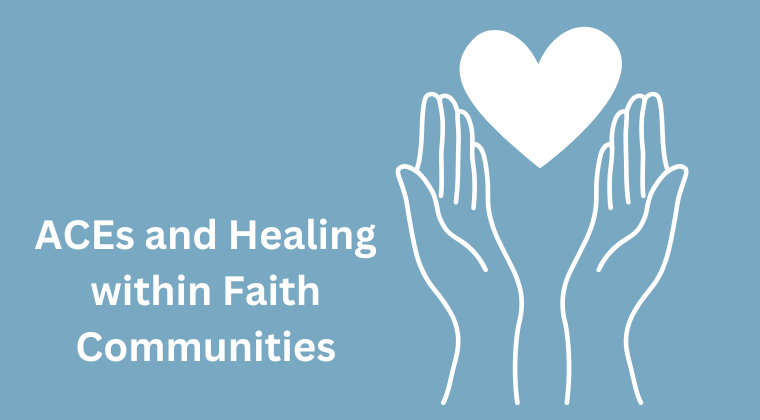While early experiences can shape people's lifelong behaviors and health, faith communities offer opportunities to improve well-being through traditions and practices and in service to others. Faith leaders play a critical role in nurturing spaces that promote healing and well-being for all members.
Opportunities to RespondIt's important to respond to ACEs within communities of faith and in service to others in ways that are healing-centered. This means not asking people to share their past traumas, and instead, creating environments that promote relationships built with empathy, foster hope, and provide supports that increase resilience.
|
Sign up to receive ongoing updates for faith-based communities
|
Self-Guided CourseA 90-minute course offered by Iowa ACEs 360 is designed for faith leaders to gain an understanding of trauma and its impact, as well as healing-centered approaches for being in community with and supporting people who may be struggling with adverse childhood experiences to promote collective well-being.
|
Additional Resources
This section is for leaders of faith-based groups or organizations interested in developing a faith-community response to adverse childhood experiences (ACEs) and traumatic stress.
Deeper Learning
Deeper Learning
- PACEs in Faith-Based Communities
- Building a Movement through Transformative Justice and Faith-Based Communities
- Where Faith and Trauma Recovery Meet
- Sacred Series Toolkit: Becoming a Trauma-Informed Faith Community
- Trauma-Informed Pastoral Care: How to Respond When Things Fall Apart
- The Age of Overwhelm: Strategies for the Long Haul
- Trauma Stewardship: An Everyday Guide to Caring for Self While Caring for Others
- Childhood Disrupted: How Your Biography Becomes Your Biology, and How You Can Heal
- The Lifesaving Church: Faith Communities and Suicide Prevention (book)
- Bruised Reeds & Smoldering Wicks (curriculum)
- Resilience: The Biology of Stress and the Science of Hope (film)
- Paper Tigers (film)

